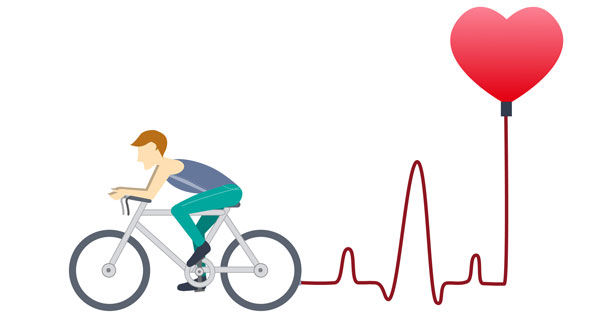“Can Bicycle Riding Wear Out My Heart Valves?” asks Mort
Written By: Adam Pick, Patient Advocate, Author & Website Founder
Page Last Updated: February 28, 2025
I just received a great question form Mort about exercise, biking and heart valve durability. Mort asked me, “Adam, Will long distance bicycle riding – approximately 12 hours a week – prematurely wear out an aortic or mitral valve replacement made from porcine tissue?”

That is a great question! As I recently became a Peloton spinner, I was really curious to learn more. So, I reached out to Dr. Luis Castro. If you didn’t know, Dr. Castro is a heart valve guru who has performed over 5,000 cardiac procedures and specializes in minimally-invasive procedures including mitral valve repair. I’ve been very fortunate to see Dr. Castro operate before.

In addition… Dr. Castro has successfully treated many, many, many patients from the HeartValveSurgery.com community including Shelly Gould, John Ehret and Salma Halteh. You can see over 200 patient testimonials for Dr. Castro here. (Yes, you read that right… 154 patient testimonials!!!)
Dr. Castro Says…
After sending Mort’s question to Dr. Castro, I was thrilled when my inbox lit up with an answer. First, Dr. Castro provided some great counsel about life after heart valve surgery.
Great question Mort! The short answer is “enjoy life to the fullest after heart valve repair or replacement surgery!” Moderation is the key.
Then, Dr. Castro provided fascinating data about how many times the heart beats during our lives and how that relates to tissue heart valves:
If we calculate out how many heartbeats we generate in a lifetime, we can state that on average, we experience approximately 36 million beats per year, which equates to almost 1 billion beats every 25 years. A fifty-year old has experienced approximately 2 billion heart beats; get to 75 years of age and add another billion! It is safe to say that most tissue heart valves do not last one billion beats.
Next, Dr. Castro explained how exercise may (or may not) impact the durability of heart valves:
The amount of time we spend exercising with an elevated heart rate above 100-150 (<2 hours a day) is far less than we spend at a resting heart rate between 55-75 bpm (>22 hours per day). Therefore, the overall number of additional heartbeats a new valve replacement may experience during moderate exercise will not significantly impact long term durability of that heart valve. On the other hand, an extreme athlete who exercises and maintains elevated heart rates above 130-150 bpm for more than two hours a day, everyday of the year, might actually shorten the lifespan of an implanted heart valve by months to several years. Most of us are not extreme athletes. Most tissue heart valves are designed to last at least 15 years after implantation
Lastly, Dr. Castro provided a final, encouraging thought for Mort:
Go out and bike and enjoy life!
I hope that helped Mort (and perhaps you) learn more about the durability of heart valve replacements, exercise and biking. I know it helped me! Many thanks to Mort for his question and a special thanks to Dr. Castro for sharing his clinical research and experience with our community!
Related links:
- See Dr. Castro’s Interactive Surgeon Profile
- John Bikes Across Country After Mitral Valve Repair!
- Patient Spotlight: Lisa Mountain Bikes After Heart Valve Surgery
Keep on tickin!
Adam











